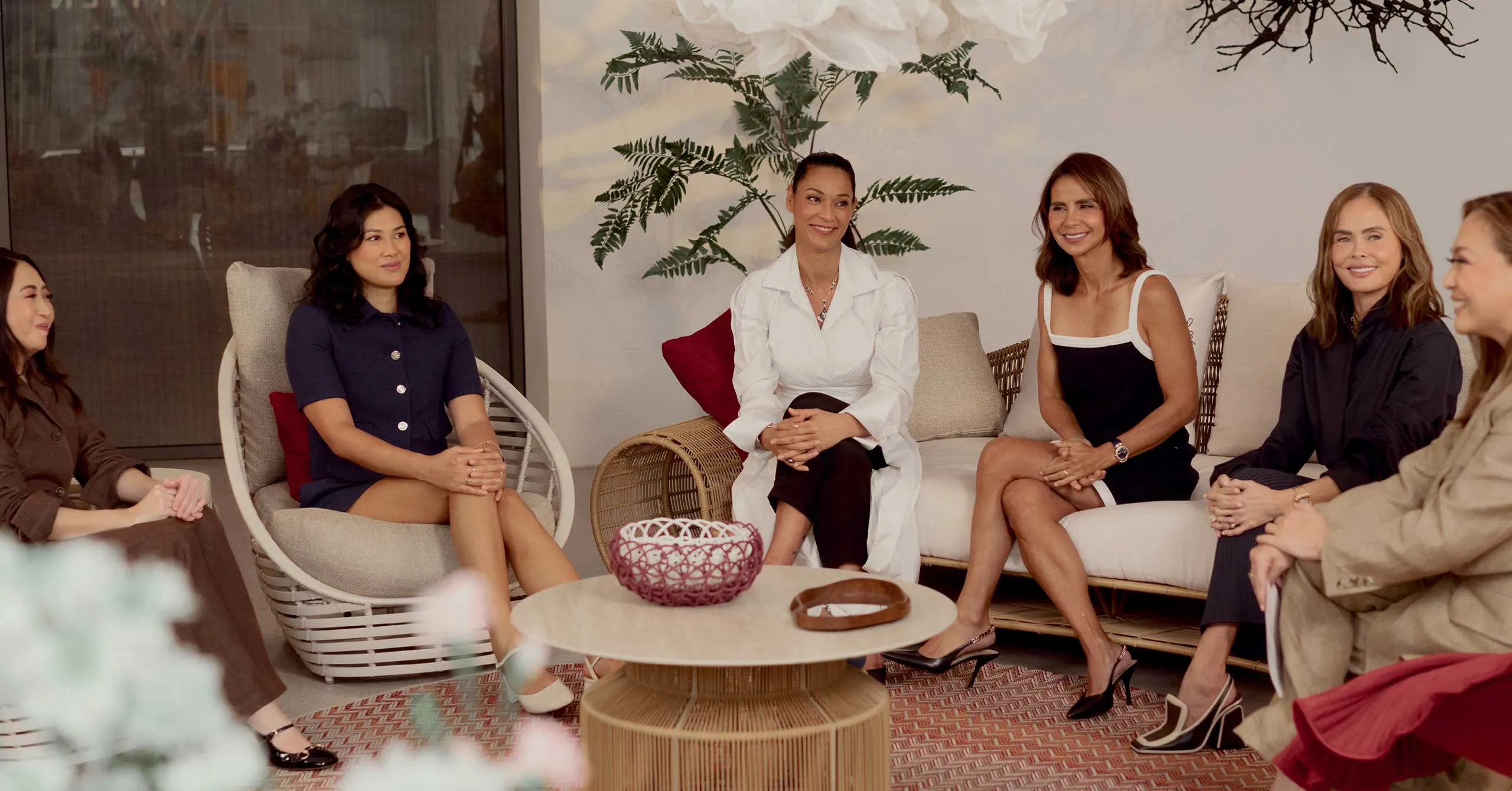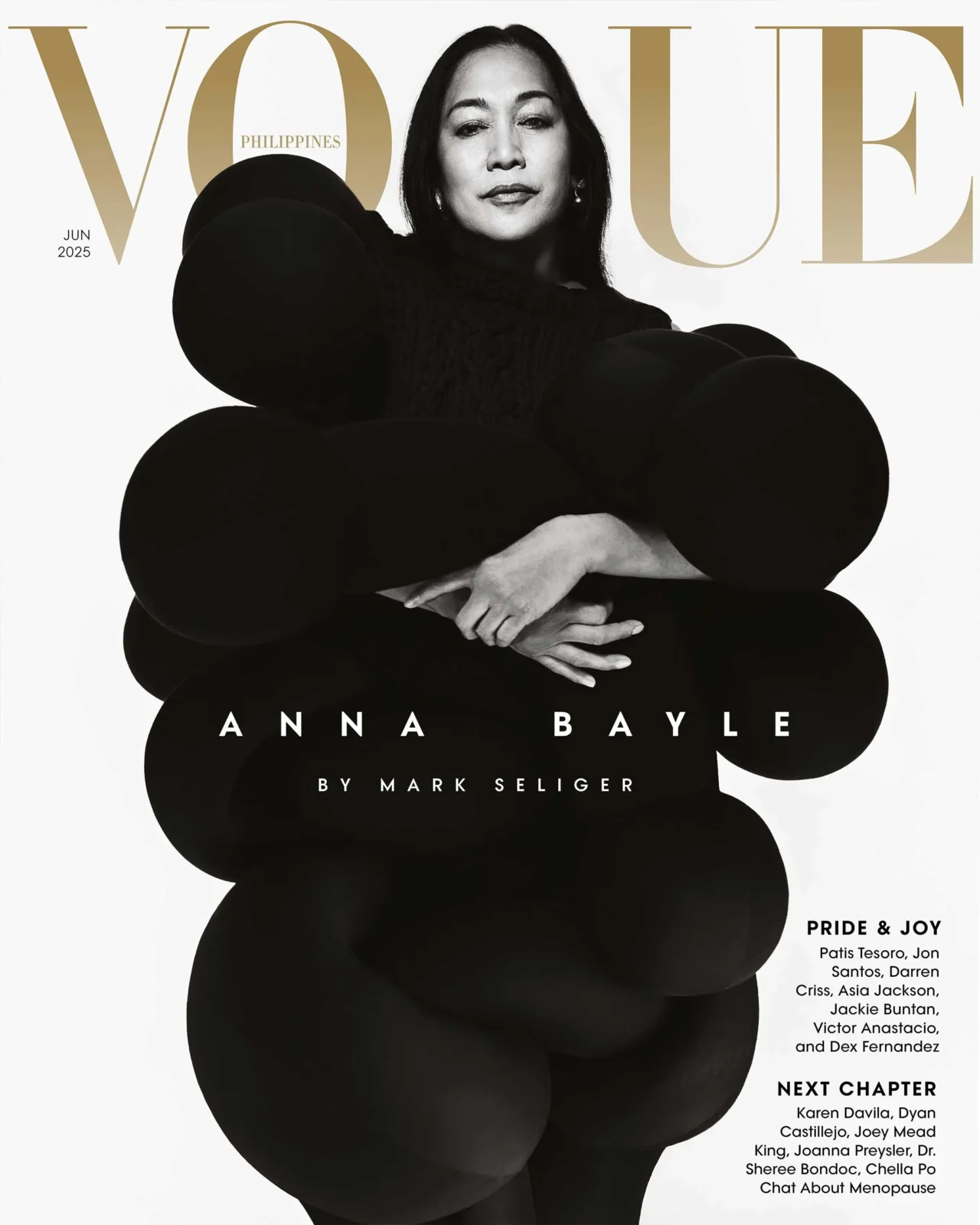Sheree wears a MAX MARA jacket and trousers; Chella wears a GUCCI top and skirt; Joey wears a MAX MARA dress, and BULGARI Diva’s Dream necklace; Dyan wears a GUCCI dress and skirt, and BULGARI Diva’s Dream watch; Joanna wears a MAX MARA shirt and skirt, and MARNI shoes; Karen wears a MAX MARA blazer and trousers, and LOEWE shoes. KENNETH COBONPUE croissant sofa; oasis lounge chair. Photographed by Artu Nepomuceno for the June 2025 Issue of Vogue Philippines
Julie Lluch georgia series. Photographed by Artu Nepomuceno for the June 2025 Issue of Vogue Philippines
What is menopause? In a conversation moderated by journalist Karen Davila, five women weigh in on the facts, share the realities of their personal journeys, and guide us through the science of what’s really happening in our bodies.
The term “menopause” carries an irony: though experienced by all women, the term was formally coined by a man. French physician Charles Pierre Louis de Gardanne introduced it in the 1820s, drawing from the Greek words men (“month”) and pausis (“cessation”).
In “Body Stuff,” a TED Talk by OBGYN Dr. Jen Gunter, she discusses de Gardanne’s book Of Menopause: Or the Critical Age of Women, then considered cutting-edge science for exploring what happens when a woman stops being fertile. Medical interest in menopause grew in the mid-19th century, and by the 1930s, it was often described as a deficiency disease. Public perception on the phenomenon has come a long way since, but De Gardanne’s work marked the start of centuries of stigma around it. But menopause is a normal biological event, and the fear surrounding it is learned, not innate. It’s one that persists today, leading to shame, silence, and a lack of support among women.
Today, evolving research and open conversations are continuously reframing menopause from a debilitating disease to an empowering transition. To take after the words of feminist Rosetta Reitz, “I’m going to pull menopause out into the open, remove the cobwebs, clean it off, and look at it.”
Here, Vogue Philippines gathers five women for a candid conversation moderated by Karen Davila to debunk myths and lay down the facts: medical director and OBGYN Dr. Sheree Bondoc, registered dietician and nutrition coach Chella Po, TV personality Joey Mead King, entrepreneur Joanna Preysler, and journalist Dyan Castillejo.
Defining the terms
KAREN DAVILA: Menopause is a natural phase of life. In fact today over a billion women are experiencing menopause, but there’s a stigma, there’s shame, there’s not enough education and information about it. They think when a woman goes through menopause, life is over. Well today, we are going to equip you. First, what is menopause?
DR. SHEREE BONDOC: [People] know menopause as when your menses have ceased, or when you’re not anymore menstruating. But actually, the real description of menopause is when a woman does not anymore produce her sex hormones. There is this transitional phase before menopause, and we call this your perimenopause state. This starts when your levels of hormones are slowly declining, not yet zero, but slowly and progressively declining. That’s also the time when symptoms start to appear, because that would all depend on the role of hormones in our body. That’s why it’s called the master hormone, because it regulates and it maintains all the organs, from head to foot. Whatever organ is affected, that’s where you develop symptoms.
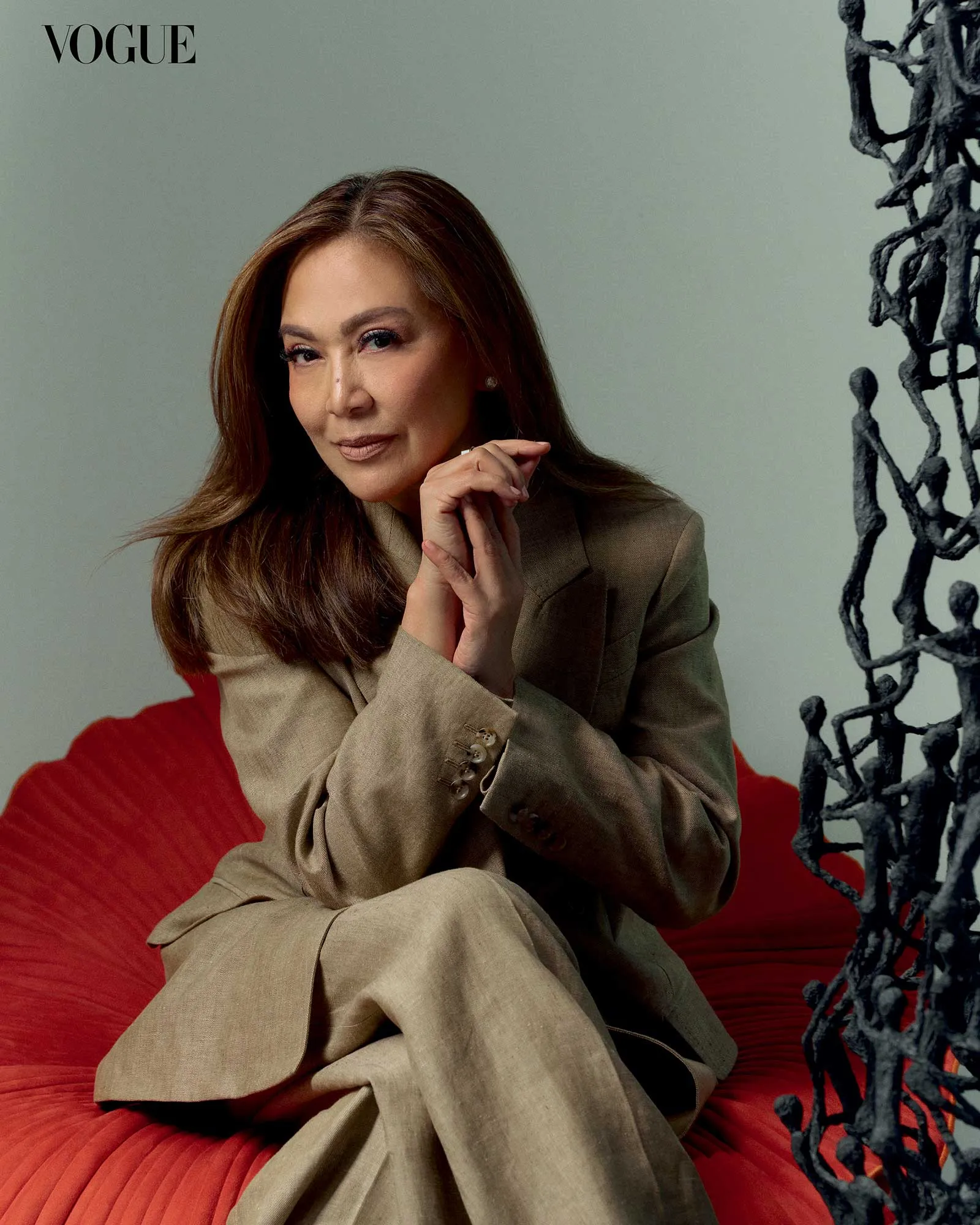
KD: What are the common symptoms of perimenopause?
SB: The most common symptom that usually most women would complain first is insomnia, and then, of course, mood swings.
JOANNA PREYSLER: Doc, let me guess what your number three is going to be. Loss of sexual desire.
SB: Our ovarian hormones are also called sex hormones. It’s more for reproduction. Estrogen, one of the things that it does is it maintains moisture on the area and that includes blood flow. If you lose that blood flow, you lose that moisture, if you lose all the nerve endings, because your estrogen also modulates your brain, that includes the dopamine pathways, which [signal] desire.
JP: It’s not like a lack of desire, or wanting to do it. Mentally, you’re there, and the attraction to your partner is there. But sometimes it’s really physiological, I believe.
KD: Women don’t really ask, ‘menopause ka na ba?’ (Are you menopausal already?) We don’t even do that to each other. So, I want to ask. Joey, what state are you in now?
JOEY MEAD KING: I’m in perimenopause!
KD: How did you know?
JMK: I didn’t know, Karen. So I’m 50 now, I turned 50 last year. But at 44, there were signs like cardiovascular shifts already. And I was thinking that this is part of aging; I even went to a cardiologist here, and I was just told, ‘You’re just getting older.’ I didn’t understand, and he put me on a hypertensive medication, which was wrong. I was misdiagnosed. This was during pandemic times. So I was really lucky that during that time I think Doc Sheree knew that, ‘My patient’s 47, I want to check her hormones.’ But before that, I was so unwell. I was recovering from dengue. My whole being, my whole hormone panel was already dropped. And to have a recovery from dengue, my hormones were flatlined. I was out and my adrenals were extinguished; hence, I had fatigue. I’m in a beautiful environment; I’m on the farm where everything is peaceful and natural, but my cadence was slow. I don’t know what happened. So that was a big slam in my face, like I wish I had known more earlier on to maybe help me have better management skills. So like I was consulting with Dr Sheree, ‘Where am I at?’ Then she goes, ‘Let me start you on HRT (Hormone Replacement Therapy).’
“This is what I tell my patients: make this as a turning point for long-term health. Once this is done, once being proactive, you can go through the menopause years with vitality, resilience, and optimal health.”
—Dr. Sheree Bondoc
KD: So I wanna ask about Joanna. When did you know? Because [Joey’s] is cardiovascular: she felt fatigued,
she felt weak, no energy. What about you?
JP: Well, let me tell you, my meno has long paused. I’m turning 56 this year, and in 2020, at the height of COVID, my poor family, they were locked down with me as I was going through menopause. And according to them, they could see some mood swings, but we all attributed it to being locked down together. And so nobody thought that it was, ‘Oh mom’s going through menopause,’ or I didn’t think I was going through menopause. In fact, I thought I lost my period as a long-term effect of COVID. I didn’t really get hot flashes. In fact, I got cold flashes; I would feel cold. My metabolism never slowed down. In fact, I feel that it’s sped up. I don’t know if that has anything to do with my needing a hormone profile check or anything, because I never was able to do that. Because like I said, it happened during COVID.
DYAN CASTILLEJO: I was just sharing earlier that I never really, like, took a deep thought about being in menopause. I guess I was just too busy, just doing and living. And I was happy when my period stopped. (LAUGHS)
KD: You were?
JP: Wait, so you didn’t feel weak?
DC: No, and I didn’t get hot flashes. [Although] my husband started me on ashwagandha, so he said I do have mood swings. But I don’t attribute it to menopause. I like to say it’s situational. So I never really thought about it. I did have my hormones tested a while back, and estrogen was super low, like almost zero. So I took hormone replacement for a while, but I didn’t push through with it.
KD: And to think the three of you are relatively fit. You know, I experienced hot flashes. I didn’t really pay attention to menopause, only because you’re busy, right? And then suddenly, you lose your period, and you didn’t even think, ‘Oh, were there signs?’ [There were] hot flashes, sometimes brain fog, but you never know. Is it because of menopause? Or [could it be] for other things?
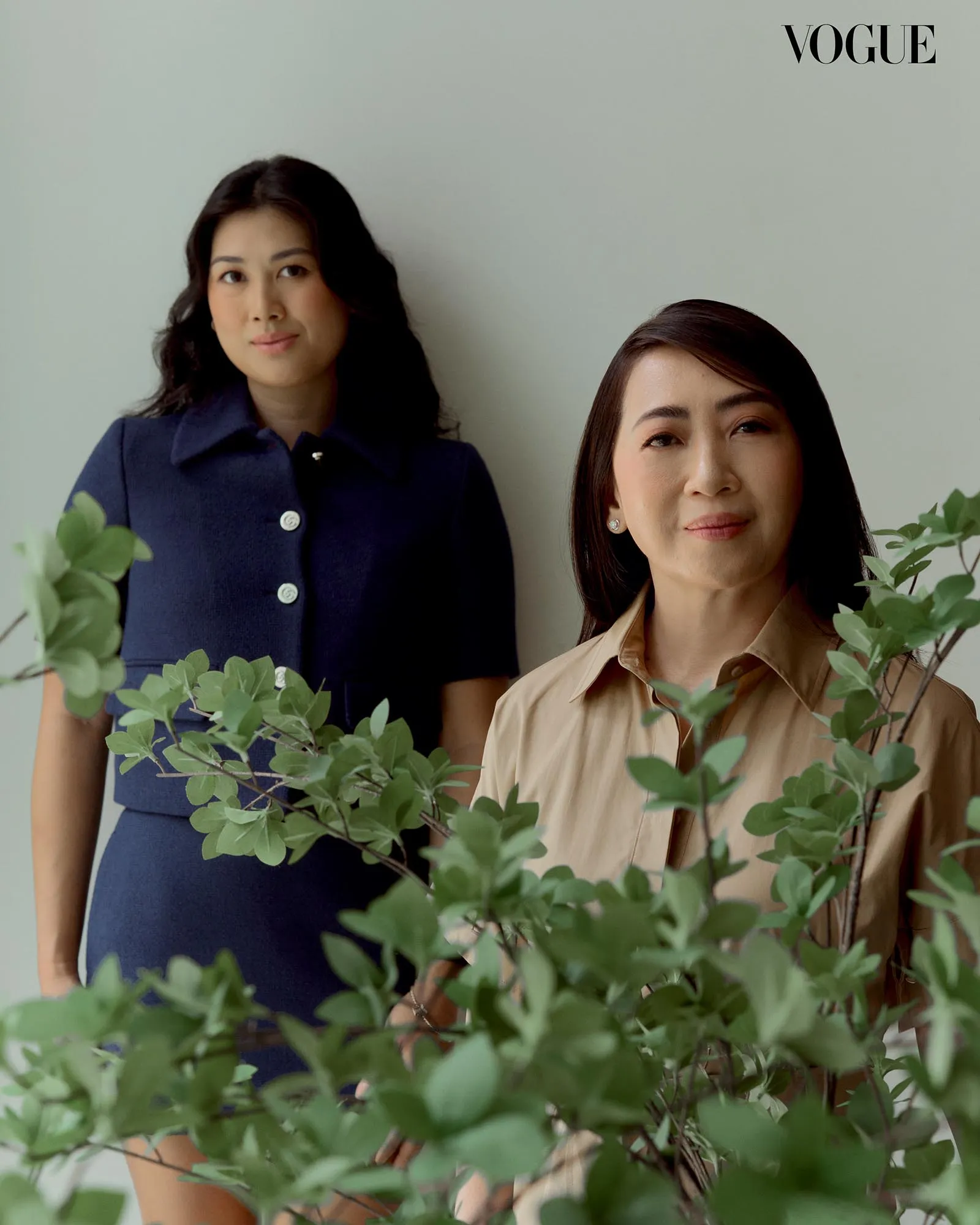
The role of nutrition
KD: Can nutrition make a difference?
CHELLA PO: My main thing is I’m teaching people to get out of a dieting mindset. People will actually come to me, and say, ‘Okay, what’s my diet?’ I teach people you’re not actually going to go on a diet. We’re going to teach you how to take care of yourself. We’re gonna teach you how to understand what’s happening to your body, especially in menopause.
KD: So what is the effect of food on menopause?
CP: Food for me is always your foundation. Food really sets the stage for everything that your body is doing. Food is the foundation, and supplements are just to add to that. It’s hard to say which one food, one thing, or one supplement. But I usually recommend people start their day with something, especially if you wake up and you’re hungry. I hear a lot of fasting; I don’t feel that it helps to stress your body some more with long fasts. Especially for women, our hormones are so sensitive. You’re going to be so hungry trying not to eat, suppress your appetite. I recommend people to wake up, in a few hours you’ll get hungry, eat something.
DC: So you’re saying that intermittent fasting is not advisable?
CP: You’re producing more cortisol if you’re not eating for a long time. Because basically we eat because we need blood sugar to live, right? If you’re not eating it through food, usually carbs, you have to make it from your body, or you’ll literally kind of have no energy, and fall over. To produce energy, you need cortisol. So your body will produce cortisol to make blood sugar because you’re not eating.
KD: Joey, what have you done after your problems? You mentioned cardiovascular issues, fatigue, weakness. How did you take control?
JMK: I deep dived! I am very resilient and determined, and I care about myself immensely. So I started deep diving, and I entered the realm of TCM, Traditional Chinese Medicine. And then I started on my hormone therapy, I do DHEA and I have estrogen cream and I do progesterone. With a nutritionist, I would send her my food every day for two weeks and my tongue in the morning and the afternoon. I told you, I deep dived.
From this, she suggested: ‘Joey, you eat too much cold food.’ In the morning, [I would eat] smoothies, cereals, thinking this is what I was doing in my 20s! And we changed. [She said,] ‘I want you to start eating warmer, energetically warmer foods, like grains, lentils, chicken.’ I understood what she was trying to tell me, so I just shifted how I ate then. But now I’m predominantly vegetarian. I changed my food and then I started changing how I work out. For years, I did the same workout. I thought I would surpass this menopause, but no! I really got hit by a truck. I was experiencing high anxiety for no reason! And brain fog also. I would make sure in the morning I’d list down all of my kailangan [needs], because when it came in the afternoon, I would forget it. And since then, I’ve had great management. I feel I’m very in tune. Anxiety is like super teeny. Now, my energy is greatly balanced.
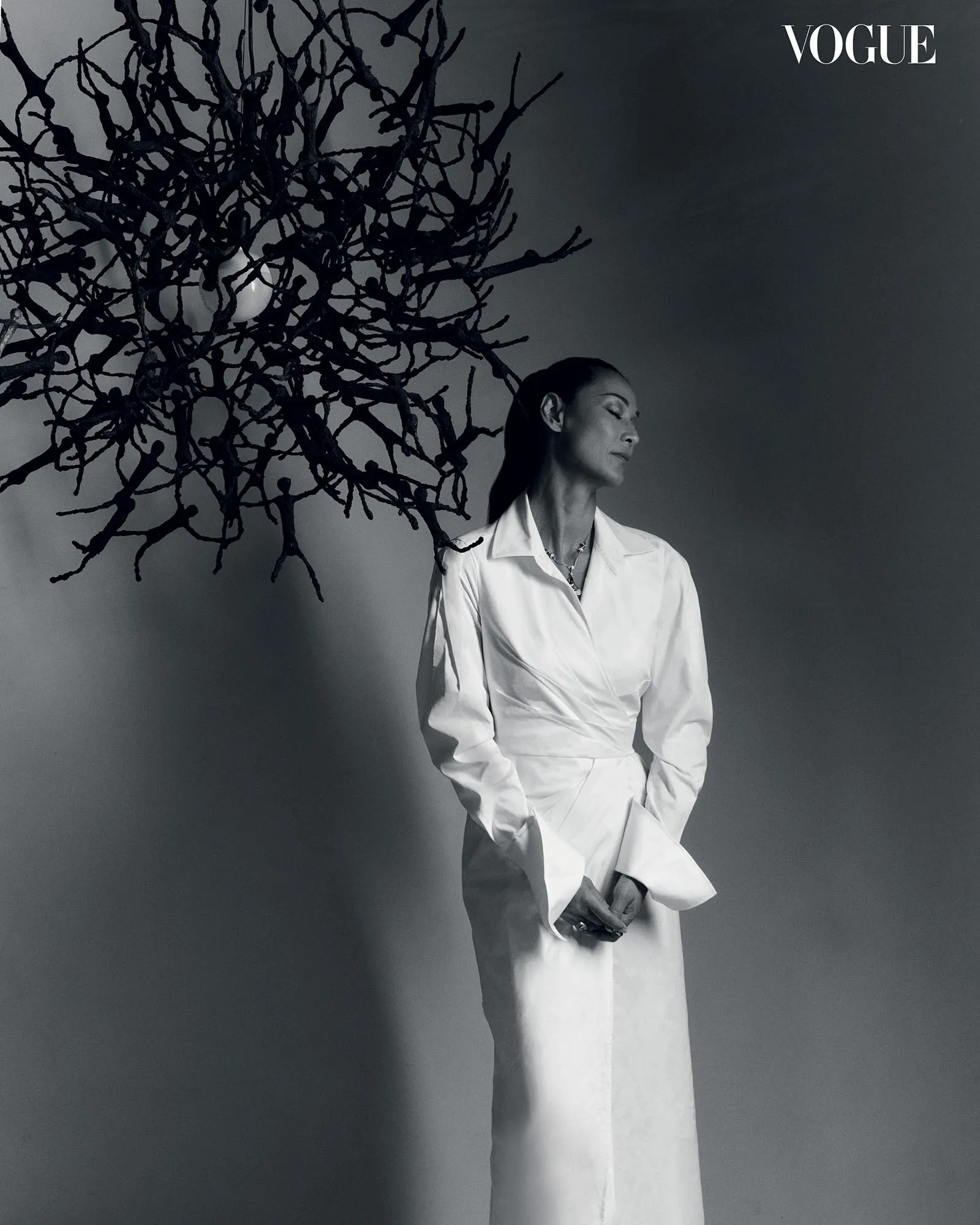
Managing health risks
KD: Let’s talk about the heart issue. Pag hindi naagapan [If you don’t attend to it], what can happen, doc? What foods can they eat?
SB: So, we’ll go back again to the purpose of estrogen or the role of estrogen in the cardiovascular system. What estrogen does is it maintains the elasticity of our blood vessels, because when you lose estrogen, your blood vessels harden. Another thing that it regulates is it makes sure that when you do eat the fat things, you make more of the good cholesterol rather than bad cholesterol. Of course if you lose, or these estrogen levels decline, that control slowly also dissipates, which results in stress and then poor sleep.
CP: If you’re eating mostly whole foods, less processed, I guess that’s how humans are made to eat. That’s real food, so that’s really what’s going to not set off your immune system in a way. We have good and bad cholesterol, so you can raise your good cholesterol, which is what lowers your bad cholesterol.
JP: I was born with mitro valve prolapse, which has been managed, and so that doesn’t bother me anymore, not even through menopause. I’ve managed the workouts, the people, the supplements I take, the food I eat, and the things that I want to do versus the things that I don’t want to do. And all that has contributed to my, I guess, having a good outlook. But I do need to have my hormones checked, because I feel that it can even be better. I mean, it’s good now, but imagine after I do my hormones, I mean, I’m going to be unstoppable!
DC: Because I was a tennis player so obviously my cardiovascular health I felt was good, we would always run as part of training. After 55, I kind of shifted to more weight training, and sometimes I would get heart pain. So I was like, ‘What is that? That’s kinda weird.’ Then later on, I was telling my husband I think I need to have my heart checked. So I did a whole cardio thing, and it was okay, but then my friend said you need to take, and you might want to shed light on this, the calcium score test, for the heart. [This is] to determine how much plaque you have in your heart, whether the cholesterol is already affecting the heart, and is it blocked or not. So I did that test, and I’m happy to say I’m in the zero to low risk. My cardio is much less now, less intense. I just like to sweat. Then, I take a lot of supplements like omega, ashwagandha, and taurine, which I take also for my brain.
KD: But for those watching, this doesn’t mean, ‘Oh wow, let me go to the nearest store and get what I want.’ You have to know first if you need it.
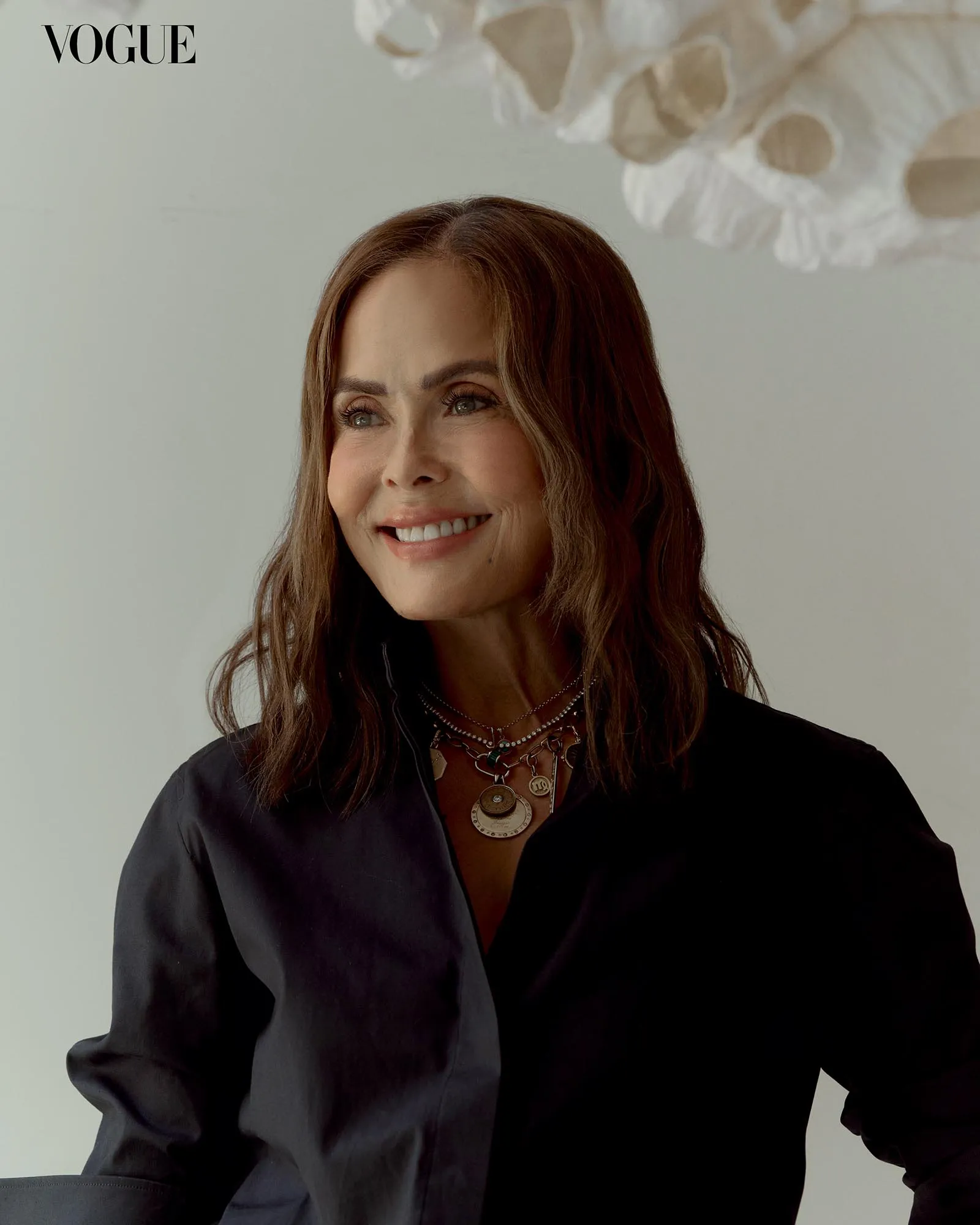
Understanding hormones
KD: So just to balance; men have higher levels of testosterone, but women need three. We’ve been talking about the value of estrogen, but is progesterone important? Is testosterone important? What is the purpose of progesterone and testosterone?
SB: Progesterone is what controls your neurotransmitters, which is serotonin, your mood, your focus. And also it’s progesterone that actually stops the growth of abnormal cells caused by your inflammatory estrogen. Testosterone, we need that for two things: to maintain the density of our bones and then, of course, for our muscles to be toned.
KD: So if you wanna keep your bone density, your testosterone level as a woman has to be good.
SB: Yeah, we have to adjust these to equal levels, but not high levels.
“I believe that menopause doesn’t have to be the end of things. In fact, it can be a wonderful new beginning.”
— Joanna Preysler
KD: Tell us the difference between bioidentical hormone replacement, and in layman’s terms, yung binibigay ng mga OBGYN [what the OBGYN prescribes] which is synthetic and available in the drugstore.
SB: I would say they have the same effect. You’re still getting estrogen and progesterone. The only difference probably, if you want me to make a comparison, is that the same food fills you up; [it’s like] processed versus whole food.
DC: So better yung bioidentical?
SB: Bioidentical hormones, these are the hormones that have a chemistry very similar to what you are naturally producing.
JP: Are they cancer causing?
SB: The fear actually started with a study that was made in 2002. That study showed apparently that estrogen does increase your risk for breast cancer.
KD: Wait, the synthetic or the bioidentical?
SB: That’s the thing. That’s where the loopholes now come in. What was used then was synthetic estrogen and progesterone, plus a lot of the data were actually really misinterpreted. Usually, bioidentical hormones, especially estrogen, it’s given in a cream form or a patch. You’d want it intraderma. The raw material is from yam.
DC: So can you eat yams na lang [instead]?
CP: So there are some foods that are similar to our structure of estrogen, a little bit of a weaker form. And if you’re not getting them from your body, you can get them from food to help to fill the gap.
SB: The end point of HRT is you want to help your organs recover. Not necessarily be young again, but just really make them optimal in functioning.
KD: I’m a believer in bioidentical hormones because I’ve used it. So for 11 years, I slept at 1 A.M., and I would wake up at 6 A.M. It was the years of my life I was most sick. But people would always ask me, why are you so energetic? At 45, I already started with bioidentical hormones. I was introduced to it because I read the book by Suzanne Somers. Essentially, hormones are your friends. There’s a misconception that if you use [hormones] you’ll have cancer. But the truth is, when you don’t have progesterone, it’s a high risk for cancer.
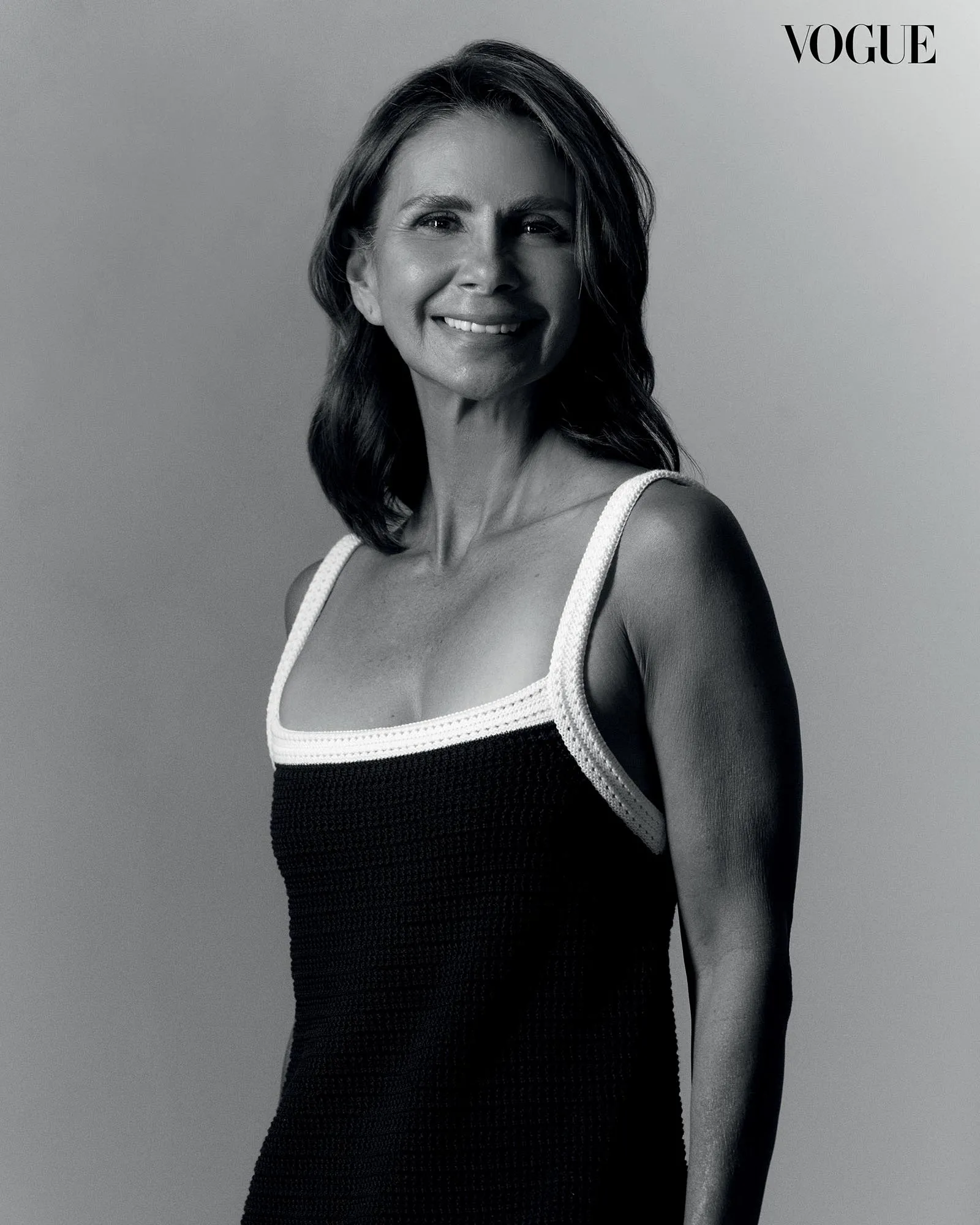
Reframing menopause
JP: I believe that menopause doesn’t have to be the end of things. In fact, it can be a wonderful new beginning. I tend to look at life always in the positive. I can make myself better by exercising, by eating right, and combating the symptoms that I felt could be cured by what I could do myself.
DC: I guess menopause is inevitable. One thing that really helps me is not to think about menopause first of all, to fear it. It’s there if you have symptoms. But praying [helps], like I have certain verses in the Bible that I use for my getting older. I have one favorite verse if I may share. It says in Psalms, even in your old age you shall stay fresh and green. But of course, go to the doctor, talk to people, share. But I think it’s something that can be a super powerful and beautiful season of your life. It’s definitely not the end all. I think that we have so much experience in life that it’s just another challenge, but with God, we can overcome.
JMK: I feel like we have learned in this era to celebrate all the moments we are in our womanhood. I look at menopause no longer with fear, but more like ‘Oh, I’m looking forward to the next celebration of my womanhood.’ And I’m on my way with great navigation skills and kinder management. Like it’s totally opened my eyes up and I’m happy that it’s being talked about more amongst my girlfriends. It is normal, it will happen, but it should be considered as ‘Congratulations! Good for you! You’ve made it this far!’
KD: Because I remember we were congratulated when we got our period!
JMK: And also knowing the things that do happen, they happen temporarily and I’ve just learned to let it flow through you. And think of all the new people you meet when you’re in this stage: physical therapist, acupuncture, nutritionist, hormone doctor, cardiovascular doctor, so many people that you need! Healers, you know, to make sure that you are safe.
KD: Is there a positive to menopause?
CP: You get to a point where you really have to take care of yourself. But you take care of yourself. Your body is not doing what you think it does or what it used to do, but it changes and then you kind of get back on track. And it looks like, I mean you guys are doing amazing, so I think it’s just a new chapter.
KD: We’re fortunate that the women in this panel haven’t experienced really the worst symptoms of menopause. Women always tend to set themselves aside. So what is your advice, Dr. Sheree?
SB: This is what I tell my patients: make this as a turning point for long-term health. And that should focus on prevention, health monitoring, very important, and, of course, you have to do lifestyle modifications. But once this is done, once being proactive, you can go through the menopause years with vitality, resilience, and optimal health.
KD: I think menopause is a very important topic to talk about because more women in the world today are in that stage in their lives. What have we learned? Number one, it’s inevitable. It’s a season of your life you have to face, but you need to face it head on. Don’t be in denial, and don’t deny yourself of the help you need. There’s so much information out there, but you need to get the right information. And you know what, the good thing about menopause is it doesn’t mean your life is over. As we’ve seen from the women here, your life is just beginning. You can be what you want to be. You can reinvent yourself.
Transcribed by BIANCA CUSTODIO. Photographs by ARTU NEPOMUCENO. Deputy Editor PAM QUIÑONES. Beauty Editor JOYCE OREÑA. Styling by NEIL DE GUZMAN. Fashion Editor DAVID MILAN. Makeup: Gery Peñaso, Carell Garcia, and Jay Salcedo using Laura Mercier. Hair: Glenda Eugenio, Mong Amado, John Alrey Valencia of Toni & Guy Philippines. Art Director: Jann Pascua. Media Channels Editor: Anz Hizon. Producer: Bianca Zaragoza. Video: Chapters PH. Fashion Assistant: Jia Torrato. Photo Assistants: Choi Narciso, Odan Juan. Shot on location at Kenneth Cobonpue Showroom.
